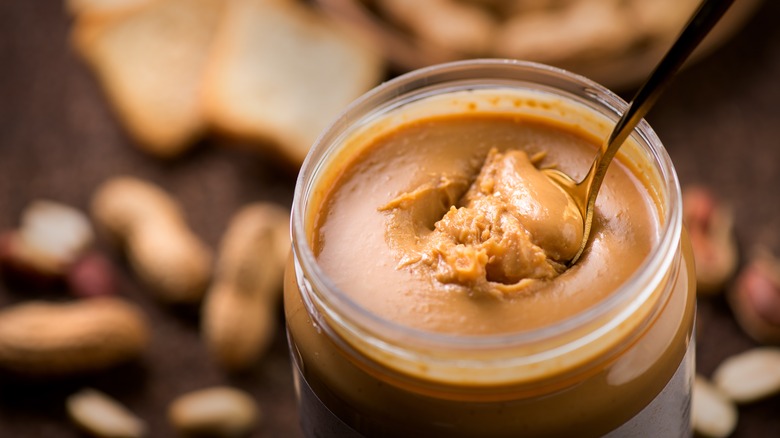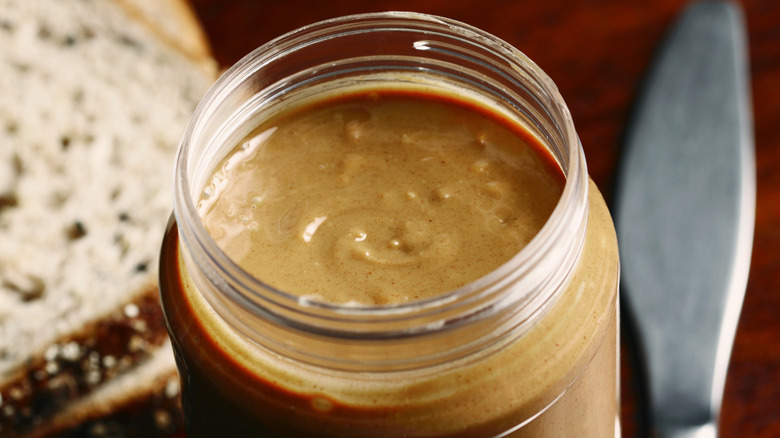Be Careful How You Store One Specific Type Of Peanut Butter
If you grew up with jars of Jif or Skippy in the pantry, you probably think that peanut butter is safe to store there. And while that's true for some store-bought brands, natural peanut butter is a different story. Unlike the processed varieties, natural peanut butter is made with just peanuts and a bit of salt — without the added stabilizers that keep it form separating. Regular jars of peanut butter lasts in the pantry because of those stabilizers. It can remain fresh for months there, even opened. But natural peanut butter needs special attention. Stored improperly, the natural oils can cause it to go bad.
Whichever brand of peanut butter you buy, knowing whether its processed or natural is the first step in knowing how to store it. Unopened, natural peanut butter can last several months in the pantry or 12 months in the refrigerator. Once opened, it should be stored in the fridge, where it will remain good for about three to four months. If you do store the opened jar in the pantry, note that it will only last about a month — even less if your pantry is warm — before spoiling. Additionally, natural peanut butter is at a higher risk for mold when kept in the pantry, even within that month. For both safety and preserving taste, it's best to keep your natural peanut butter in the refrigerator once opened.
Signs your natural peanut butter has gone bad
While your jar of peanut butter will have a Best By date, it might not always stay fresh until then, so you'll want to know how to spot signs of spoilage. Determining whether your peanut butter has gone bad is often easy, as spoiled nut butter typically gives off a rancid smell. Without that, another sign to look out for are visual changes. If it has developed an unusual color, such as a dark brown or greenish hue, it might be spoiled. Fresh natural peanut butter should have a consistent color and nutty aroma. For those who make their own nut butters, knowing these signs is crucial as you won't have a best by date on your jar.
Textural changes can also be an indicator. Natural peanut butter naturally separates over time, so look for significant changes like dryness or a crumbly consistency. Taste is another reliable way to assess freshness. Spoiled peanut butter can taste rancid, bitter, or sour, so discard any jars that have an off taste.
Finally, visible mold on the surface of the nut butter is a clear sign that it's time to toss it in the trash. Even if mold is only present in a small area, it's safest to throw the entire jar away. By being mindful of these signs and storing your peanut butter properly, you can ensure it stays fresh and safe to eat.

